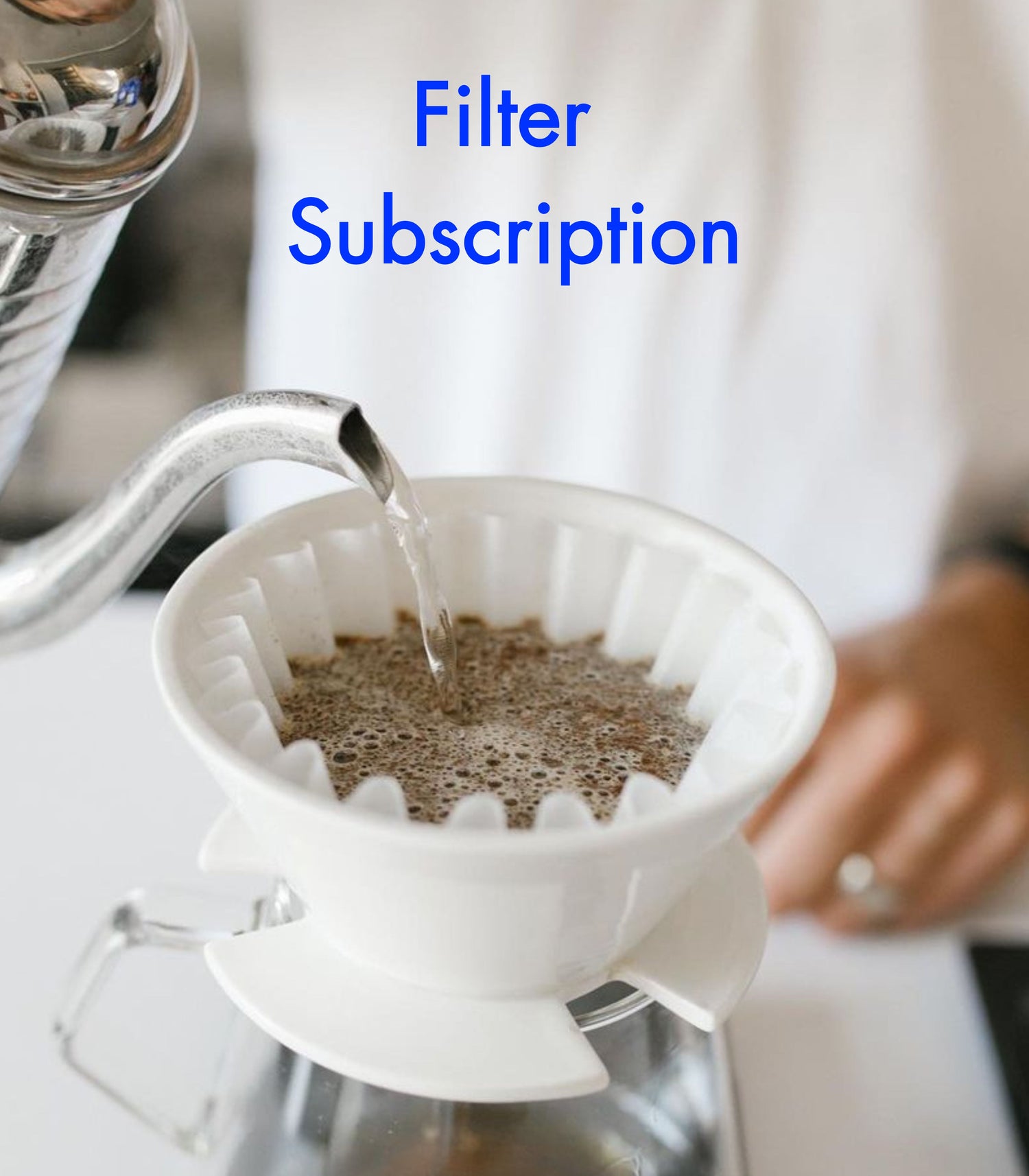Heading fast into Autumn and what better way to enjoy the comfort of home and friends than coffee from Koppi! We hope you enjoy this wonderful selection and thank you for being a part of Bean Bros!

Koppi Roasters — Sweden
Founded in 2007 by former Swedish barista and brewers champions Anne Lunell and Charles Nystrand, Koppi Roasters has become one of the most respected names in Scandinavian specialty coffee. Based in the coastal city of Helsingborg, Koppi began life as a café with a small in-house roaster before evolving into a dedicated roasting space that reflects their pursuit of clarity, consistency, and connection.
At the heart of Koppi’s philosophy is a deep commitment to long-term relationships with coffee producers. Anne and Charles travel regularly to origin, working directly with skilled and dedicated farmers to select coffees that express place, process, and care. Their approach is rooted in transparency and respect - ensuring value flows back to the people behind the beans.
In the roastery, Charles oversees production with a meticulous touch, translating those close producer relationships into clean, expressive roasts that embody Scandinavian precision. The result is coffee that feels both honest and refined, always highlighting the natural sweetness and nuance of the bean.
Over the years, Koppi has gained international recognition for its thoughtful sourcing, elegant design, and consistently beautiful flavour profiles, recently ranking #6 among the top 100 roasters in the world.Yet despite this acclaim, their focus remains grounded: to roast coffee with integrity, celebrate the producers who make it possible, and share something truly memorable in every cup.
We hope you can take the time to read this piece from Koppi. A great insight into the way they work and what makes them tick. A real humble and purposeful company run by wonderful people.
Who makes up the team
Our team consists of myself and Charles, Björn and Kathe. Charles and I founded Koppi in 2007 and Björn joined our team in 2016 and Kathe is an old friend of ours that just started working a couple of days a week.
What is the story behind the name
It came from us wanting to work internationally and we figured that a short name that was easy to remember would be a good start. As many people likely know “kopi” means coffee in few languages and we liked the sound of the word but wanted it to look more symmetric, so we added a p.
Any achievements that make you proud
It is always hard to compliment yourself I think, but I think that the biggest and most meaningful achievements for us are that we have run our company for 18 years and for almost all those years have been lucky to work with the same fantastic producers in Colombia and Costa Rica. They are, simply put, amazing – beautiful friends and incredibly passionate and skilled producers. On top of that we also have an incredible network of both wholesale and retail customers that have supported us for a very long time as well.
Any coffee moments you have really enjoyed recently?
For the first time we were able to welcome three of the producers we work with in Colombia to Sweden. It was the first time they travelled outside of Colombia and I just loved getting to show them the same hospitality and warmth that they always show us when we visit them. So I will have to say that making coffee together at our house in the morning, enjoying it in the garden together and just talking for hours was really special. It was also super fun to spend a day at our roastery showing them around, cupping together and essentially showing them what we do on a daily basis.
How is the coffee community in your area
Unfortunately there isn’t much of a community here. But we are lucky to work with fantastic wholesale partners fairly close by and all around the world and they are doing a great job representing us. We are also planning to start serving coffee at the roastery on a regular basis. Otherwise I think Copenhagen has an amazing coffee scene – there are just an abundance of
great places to go. We are lucky to work with some really special people and businesses and on top of that there are obviously many other coffee businesses that we love to visit when we go over.
Anything you would like to share as an insight or opinion into how consumers or professionals can make good choices and maybe have a positive community, environmental or wider impact?
It is a big question that isn’t simple to answer. We have always been interested in working closely with the producers that we work with – both to get to know them on a personal level but of course also to see how the coffee is grown, how things are done at the farm etc.
The first couple of years that we travelled our curiosity was mainly driven by our thirst to learn more about each step in the production chain and mainly so everything that is happening at farm level. Taking photos of cherries and coffee trees perhaps sometimes stole more of our attention than focusing on what the producers tried to communicate. Of course we loved meeting the them but at the same time I don’t think that we could always see things from their perspective, and perhaps we didn’t try to either. But after a couple of years we started to understand that there was so much more to learn and we have had a very humble approach ever since. And everything starts with the people. Mutual respect, interest and understanding is the way to go.
So we started really listening to the producers, listened to them explaining what their challenges were and also what plans and dreams they had for the future. Deep and sincere conversations that brought us closer to each-other and helped us understand their view on things and the other way around. Many times it came down to money, or the lack of money. It is expensive to produce specialty coffee and if we want the good stuff we also need to pay
well for it. Something that should be basic knowledge but that seems to be forgotten or ignored by many in our industry. For us to be able to make a positive impact by paying well for so many years means a lot. It offers both parties security – we can be sure to get amazing coffee year after year and they know that they will sell their coffee to a good price.
What drives you and the way you work or what are your main concerns
Working with the most amazing people and equally amazing coffees is a constant source of inspiration and it gives us so much energy on a daily basis. Working with exquisite coffees are making our work enjoyable but it also comes with great responsibility. We are taking our job serious – roast every batch of coffee well so that we represent the hard work of the producers.
Our main concern is probably climate change. It is likely the biggest threat and things are already changing rapidly at origin. The common input from all producers is that climate has and is changing. The weather used to be much more reliable and they used to be able to estimate when the harvest would start, how big the production would be etc. But now everything is upside down, it’s raining during the dry periods, and during the wet periods there can be too
much sun. This affects everything, perhaps especially much since coffee is a crop with a very long ripening process. Too much rain, too much sun, frost, wind – everything has an impact.

The Coffee This Month
Colombia – Finca El Porvenir
Grown by Sandra Milena Mora and Hector Coy in the lush hills of Palestina, Huila, this small Caturra lot embodies balance and sweetness. Organically cultivated and carefully fermented for up to 48 hours before drying on raised beds, it’s a beautiful example of how attention to detail translates directly into flavour.
Cup profile: Smooth layers of dark chocolate and caramel with a lift of sweet red berries — comforting yet vibrant, a quintessentially Colombian expression.
Costa Rica – Santa Rosa 1900 Washed Red Catuai
Produced by Ricardo Calderón at Finca Macho in the high altitudes of Tarrazú (1,900 m), this coffee carries the signature clarity and precision that make Costa Rica so distinctive. The cherries rest for 48 hours in a “reposado” stage before being processed — a hybrid between honey and washed methods that enhances complexity and sweetness.
Cup profile: Juicy raspberries and pomegranate meet soft caramel tones, delivering a cup that’s bright, elegant, and full of energy.
Ethiopia – Chelchele Kelloo
Sourced from smallholder farmers near Gedeb, and processed at the Chelchele Washing Station(1,900–2,100 m), this washed heirloom lot is a quintessential taste of southern Ethiopia. The precision in sorting and fermentation allows its floral and citrus notes to shine with crystalline clarity.
Cup profile: Fragrant lemon verbena and white peach, rounded by delicate floral sweetness — light, graceful, and effortlessly drinkable.







